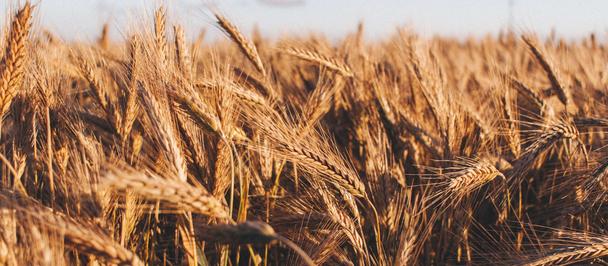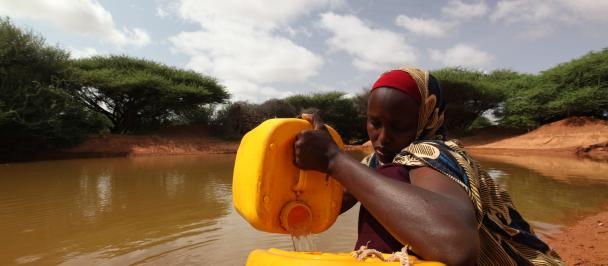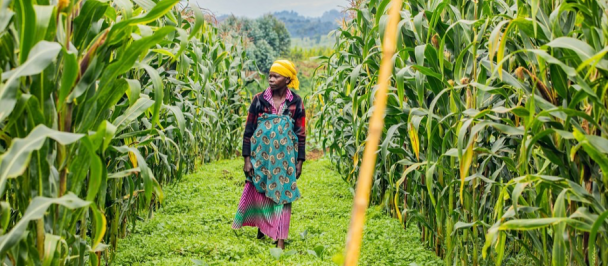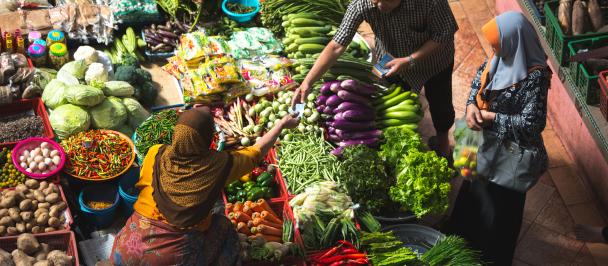Investing in smallholder farmers means investing in sustainable development
June 30, 2025

Agricultural insurance can help break the cycle of risk, debt and poverty affecting smallholder farmers, who produce a third of the world's food.
Some of our earliest memories are of our mother cooking up a storm in the kitchen of our family restaurant, Can Roca, in Girona. Mom’s famous rice stew. Riñones al Jerez. Cannelloni. Homemade flan baked fresh every afternoon. These are the smells and flavours from our childhood that have shaped who we are today.
Our family has been in the restaurant business for three generations. The love of food is in our DNA—and so is the understanding that food doesn’t begin on the plate. It doesn’t even begin in the kitchen. It starts on the farm.
From our morning coffee to our favourite rice stew, we rely on smallholder farmers for a third of the world’s food. Those who farm on less than two hectares of land are the backbone of our food system. Agriculture is the primary income source for one in four people globally and accounts for over a quarter of the gross domestic product in many developing countries.
Yet the farmers who feed us often struggle to feed themselves. They are on the frontlines of climate change, facing droughts, floods, pests, and erosion. These challenges are becoming more frequent and threaten their livelihoods.
In India, droughts that used to come once a decade now occur every few seasons. One failed harvest can mean a child loses a year of school or a family falls into debt.
Extreme weather also plays a role in what ends up on our plates—or in our cups. Ethiopia, one of the world’s top coffee producers, could lose over half its coffee-growing land, impacting 35 percent of its export earnings and millions of jobs. This can affect the price and availability of coffee around the world, including right here in Spain.
“There is a climate change problem,” said Ahmed Abagidi, an organic coffee farmer in Western Ethiopia. When rain came too early, it reduced the quality and the amount of beans he produced, significantly lowering his earnings for the season.
“This year, we are facing drought due to lack of rain,” said Dine Mohamed, a coffee grower in Ethiopia’s Harar region. “Last year, our crops were damaged by heavy rain.” Smallholder farmers like Mohamed and Abagidi make up the majority of the country’s coffee producers.
There is a way to help break the perpetual cycle of risk, debt and poverty affecting smallholder farmers. It’s called agricultural insurance. But it can only work if it’s coupled with supportive government policies, reliable data and investment from the public and private sector.
UNDP is championing support for agricultural insurance programmes in countries across Africa, Asia, Latin America, and the Middle East through public-private partnerships. For instance, UNDP’s Financial Resilience in Agriculture initiative, funded by the Gates Foundation, brings together policymakers, insurers, banks, and development partners to scale up support for existing insurance models in order to ensure lasting impact for those who rely on protection from climate-related losses.
"The love of food is in our DNA—and so is the understanding that food doesn’t begin on the plate. It doesn’t even begin in the kitchen. It starts on the farm."
For farmers like Sunil Kumar in India, having insurance enabled him to quickly recover after erratic weather destroyed his wheat and paddy crops. It also meant that he didn’t have to pull his kids out of school. “We can’t control the weather,” he said, “but we can prepare for it.”
In India, over 40 million smallholder farmers received coverage. In Colombia, new insurance products will incentivize adoption of sustainable agricultural practices. In Mexico, over 10,000 small-scale farmers received coverage, while Uganda covers 700,000 farmers with insurance. These models work. They just need investment and political commitment.
This week, global leaders are gathering in Sevilla for the Fourth International Conference on Financing for Development. We in Spain know first-hand how important agricultural insurance is in protecting families and building resilience in our own country, where many were (and still are) smallholder farmers. Since approving the Agricultural Insurance Law in 1978, Spain has been leading worldwide efforts to promote resilient farming by mobilizing public-private insurance partnerships. The conference in Sevilla is the perfect opportunity to put smallholder farmers—and the key role governments must play in enabling effective agricultural insurance—at the heart of the conversation.
Without financial protection, one failed season can spiral into years of poverty. For Ashwini Kumar Modgil in India, whose potato crop was destroyed by rain, insurance meant he didn’t need to take out a loan or sell his land. “The money came when I needed it most,” he said.
These stories show that agricultural insurance isn’t just a financial tool. It’s a source of stability and hope—not only for the farmers, but also for the world that depends on them. Spain’s decades-long commitment to agricultural insurance is proof that investing in small-scale farmers means investing in our shared future.
Yet fewer than 20 percent of smallholder farmers have access to any form of insurance. That’s not sustainable. As the effects of climate change intensify, farmers lacking financial resilience will struggle to invest in sustainable farming practices, food systems will remain fragile and economies around the world will pay the price.
As chefs, we celebrate the link between food, culture and community. As UNDP Goodwill Ambassadors, we know that if we want a world where food is abundant, fair and sustainable, we must begin by not leaving behind the people who grow it.
This article was originally published in Spanish in La Vanguardia.

 Locations
Locations




